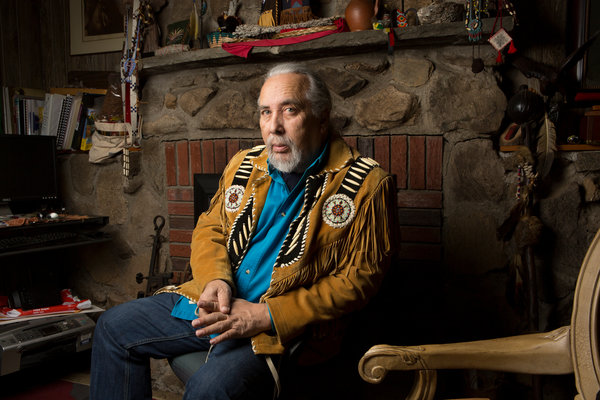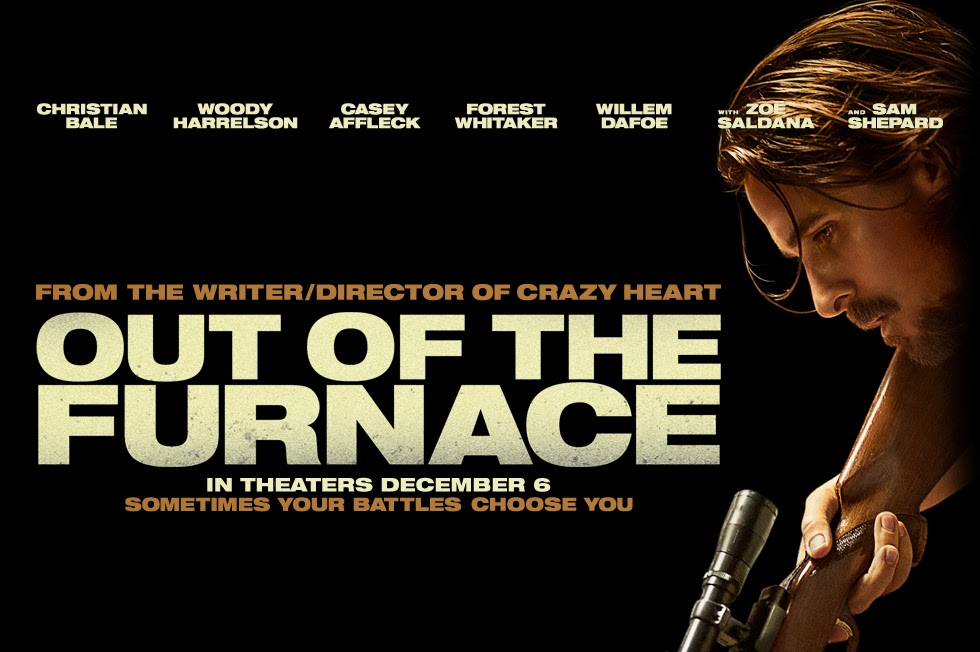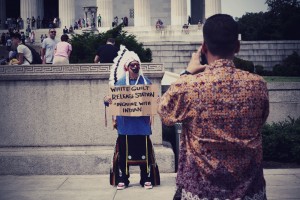
“The undertones are racist and personal.” DWAINE C. PERRY, president and chief of the Ramapough Mountain Indians
December 11, 2013 The New York Times
MAHWAH, N.J. — The past week has been unsettling for the Ramapough Mountain Indians, who live on this northern stretch of the Appalachian Mountains that overlooks the Manhattan skyline and wealthy parts of Bergen County. The new movie “Out of the Furnace,” featuring a star-studded cast that includes Christian Bale and Woody Harrelson, also features numerous negative references to the Ramapoughs. They include a fight-ring subplot.
Keith Van Dunk, 27, a member of the tribe, took a break from feeding the chickens at his father’s house up on Stag Hill here on Sunday morning and gestured at the surrounding woods.
“You see any fight ring up here?” he said. “Absolutely not.”
Tribal leaders and local elected officials held a news conference last week, speaking out against a film that they claim portrays them as trashy backwoods bumpkins involved in drugs and violence. One Ramapough henchman in the movie even bears Mr. Van Dunk’s last name.
The references constitute a “hate crime” that has “stained the community and stirred up animus” by increasing marginalization and stigmatization, said the Ramapoughs’ chief, Dwaine C. Perry, 66, in an interview.
In the past few days, he said, there had been several instances of Ramapough students in local high schools being picked on by classmates who had seen the film, including one case in which a teacher had to intervene.
At a showing of the movie last weekend, someone hurled slurs at a Ramapough woman in the theater, he said. There was also a fight at a local mall that tribal members said was stirred up by the film.
“The film contains ugly stereotypes that stain you for life,” Chief Perry said. “The undertones are racist and personal. It’s a hate crime when you look at the psychological impact on the kids.”
Contacted for comment, the film’s production company, Relativity Media, released a statement saying that the film is “entirely fictional” and not “based upon any particular person or group of people.”
“As is the case with most films, the filmmakers conducted research and drew upon their own personal life experiences in creating an original screenplay, and the story and the characters are entirely fictional,” the statement read.
Scott Cooper, who directed the film and co-wrote the script, was unavailable for comment Wednesday night. But a Relativity Media spokesman said that John Fetterman, mayor of Braddock, Pa. — the other main setting in the film — had nothing but praise for the way the movie portrayed Braddock. Mr. Fetterman called it a respectful depiction that was “eloquent, forceful and honest,” in a guest column he wrote for Variety magazine.
Several characters in the film have last names that are prevalent Ramapough names, including De Groat and Mann. The film was not shot in the area, but the Bergen County Police Department is portrayed as the local authority.
Mr. Van Dunk said he refused to buy a ticket to the film, but he consulted the IMDB website and saw that several cast members were listed as “Jackson White.”
The term “Jackson White” is a slur used by outsiders to deride the Ramapoughs, Mr. Van Dunk said, referencing the tribe’s descent from Native Americans, whites and runaway slaves who settled in the mountains in the late 18th century. The term dredges up decades of a long, ugly history of discrimination and marginalization.
“To me, it’s like calling a black person the N-word, and my father is black,” said Mr. Van Dunk, who works for a moving company in Hackensack. “In high school, kids would call me a Jackson White in the hallway, and if I stuck up for myself, they’d say I’m living up to the stereotype.”
Before the opening of the film, which was the third-grossing film in the country last weekend, The New York Post published an article saying that it depicts the Ramapoughs as “New Jersey hillbillies.” The article characterized tribe members as unsophisticated, intermarrying types who are ridiculed, who hunt and eat squirrels, and who drive all-terrain vehicles on dirt roads.
Read the rest here, The New York Times





